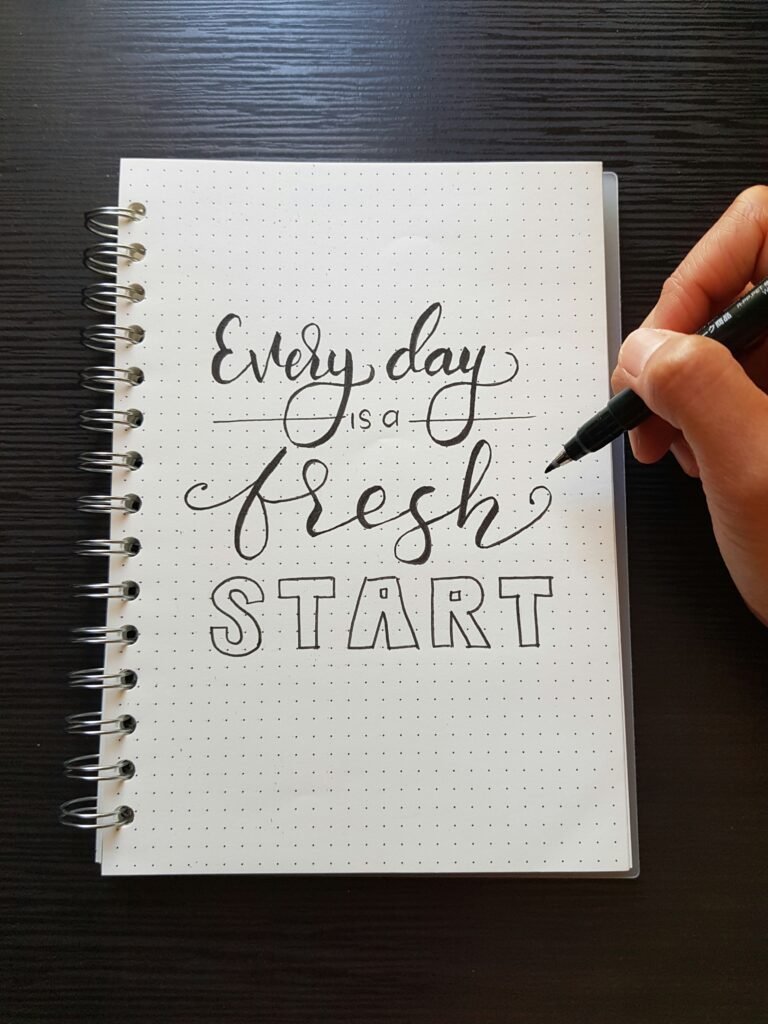10 Tiny Habits That Completely Changed My Day
The Power of Small Changes
There’s something magical about the quiet of early morning—when the world is still sleepy and the day hasn’t yet been decided. Over the years, I’ve realized that the biggest changes in my life didn’t come from huge resolutions but from tiny habits. Little things I barely thought would matter ended up completely shifting the way I moved through my day.
At first, I was skeptical. Could something as small as drinking a glass of water before my coffee really make a difference? But as days turned into weeks, those small actions began stacking on top of each other. Each one felt tiny on its own, but together they started to change how I felt, how much energy I had, and even how much calmer I was.
The best part is how simple they are. No fancy apps, no strict schedules, no extra hour you don’t have. These little changes just slide into your day almost without you noticing. And yet, over time, they make such a difference. It’s kind of like adding a squeeze of lemon to a dish—small, almost invisible, but suddenly everything tastes brighter.
I’ve chased big goals before—wake up at 5 a.m., work out an hour every day, meditate for 30 minutes… and guess what? I gave up after a week. It was just too much. Tiny habits, though, are different. They’re so small you can actually keep them up, even on those crazy days when nothing goes as planned. And that’s what makes them work.
What I love about these habits is how they build on each other. One small win makes the next one easier. Before you know it, you’re making better choices almost without thinking. That’s the power of these little changes—they sneak into your life quietly, but the impact grows louder with time.

My Husband’s Skepticism Turned Into Practice
“Are you seriously timing your shower?” my husband Ryan asked, laughing, as he watched me try out one of my new tiny habits. He thought my 20-second breathing pause before opening emails was “hippie nonsense” and that finishing showers with cold water was pure torture.
But then I started noticing little changes—not just in me, but in him. A few weeks later, his phone magically started charging in the living room instead of on his nightstand. He downloaded a meditation app. He even began leaving a glass of water next to the coffeemaker. “I’m just trying it,” he insisted whenever I teased him.
Fast forward a couple of months, and Ryan is the one reminding me to journal in the evening or to take a short walk after dinner. The man who rolled his eyes at my “tiny habits” now swears they make his whole day feel lighter. Honestly, I can’t think of a better endorsement.
Why These Tiny Habits Work
These little actions might not seem like much on their own, but they set off ripple effects. Drinking water first thing in the morning wakes up your body. Writing down one small priority clears your head. A short walk after lunch helps fight that afternoon slump.
They’re easy enough that you can’t talk yourself out of them, but meaningful enough to change how the rest of your day feels. That’s the secret—they’re simple, doable, and they stick.
What You Need for These Habits
- A glass of water by your bed
- A small notebook and pen
- A five-minute timer
- A phone charging station (outside the bedroom)
- A reusable water bottle
- A clutter-free spot to work
- Comfortable walking shoes you’ll actually use
- A bedtime routine checklist
The 10 Tiny Habits
- Drink water before coffee. Put it on your nightstand before bed so it’s the first thing you do when you wake up.
- Write a quick journal entry. Three things you’re grateful for, one priority, and one kind thought for yourself.
- Take three deep breaths before opening email. Just 20 seconds to reset.
- Charge your phone outside your bedroom. No late-night scrolling, no waking up to instant overwhelm.
- Start with 90 minutes of focused work. One task, no distractions, before opening messages.
- Take a mid-day reset. At 2 p.m., stand up, look outside, breathe deeply for five breaths.
- Link water to another habit. Every time you check your phone or finish a task, take a sip.
- Walk for 5 minutes after lunch. Even around the block—it wakes up your body and brain.
- Write down 3 wins in the evening. No matter how small. It gives you closure and perspective.
- Do a 10-minute tidy before bed. Reset your space so your morning feels calmer.
Tips for Success
The key is consistency, not intensity. These habits work because they’re quick and fit easily into daily life. If you miss a day, don’t overthink it—just pick up again the next day.
Try linking them to something you already do. For example, write in your journal while your coffee brews or tidy up right after brushing your teeth. Those little connections make it easier to remember and harder to skip.
Closing Thoughts
And there you go—10 tiny habits that completely changed my days. They’re not big or dramatic, but that’s the point. Small things, done consistently, really do add up. Start with just one or two and see how they feel. Soon, you’ll notice that your day runs smoother, your mind feels clearer, and you have more energy than before.
Sometimes, the smallest shifts create the biggest change.

Frequently Asked Questions About Tiny Habits
How long does it take for a tiny habit to become automatic?
Research shows that habit formation typically takes anywhere from 18 to 254 days, with an average of 66 days. Smaller habits tend to become automatic faster than complex ones, which is why these tiny habits are so effective.
Can I implement all ten habits at once?
It’s not recommended. Behavior science suggests starting with just 1-2 new habits at a time. Once those feel automatic (typically 2-3 weeks), you can add another. Trying to implement all ten simultaneously often leads to overwhelm and abandonment.
What if I miss a day? Is the habit-building process ruined?
Absolutely not! Research shows that missing a single occurrence of a habit has minimal impact on the overall habit-forming process. Simply resume the habit the next day without guilt or attempts to “make up” for the missed day.
How do these tiny habits compare to setting bigger goals?
Tiny habits work below the threshold where motivation becomes necessary, making them far more sustainable than ambitious goals. They create small wins that build momentum toward larger changes over time.
Can these habits really make a significant difference?
Yes! The compound effect of these small actions creates surprising results. A Stanford study found that tiny habits led to more sustainable behavior change than goal-setting approaches, with higher reported satisfaction.
What’s the best time of day to implement these habits?
Distribute them throughout your day rather than clustering them. Morning habits leverage your fresh willpower, while evening habits capitalize on reflection. Spreading them creates multiple “reset points” throughout your day.
How do I remember to do these tiny habits?
Use existing behaviors as triggers (habit stacking) and environmental cues (like placing objects in your path). You can also set calendar reminders for the first few weeks until the habits become more automatic.
Which habit should I start with?
Begin with the habit that seems easiest or most appealing to you. Early success increases motivation for tackling additional habits. Many people find the morning water or phone placement habits easiest to implement first.
Will these habits work for people with ADHD or executive function challenges?
Yes, with modifications. Those with ADHD often benefit from more prominent visual cues, pairing habits with stimulating activities, and using timers. The tiny nature of these habits makes them more accessible for those with executive function challenges.
How do I track these habits?
Simple tracking methods work best—a checkmark on a calendar or a habit tracking app. However, don’t let tracking become more complicated than the habit itself. For some people, tracking itself becomes an obstacle.
Can children benefit from tiny habits too?
Absolutely! Children respond extremely well to small, consistent routines. Simplify the habits for younger children and involve them in creating visual reminders or celebrations for habit completion.
What if a particular habit doesn’t seem to be working for me?
Modify it to fit your life rather than abandoning it completely. If morning journaling feels overwhelming, try a single sentence instead of three items. Adapt the habit until you find a version that sticks.

